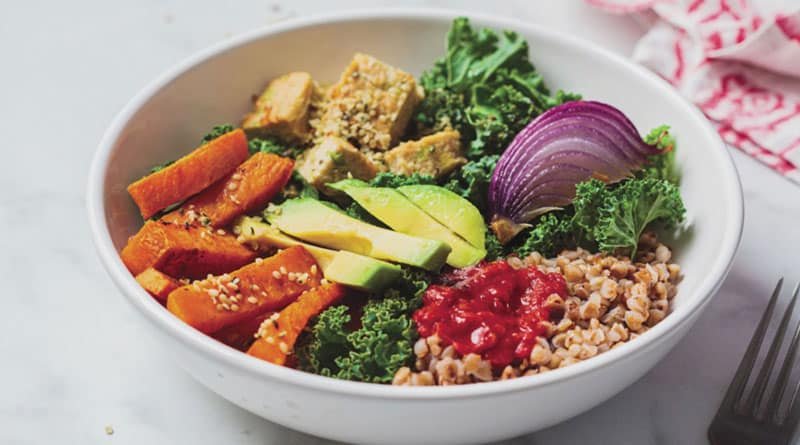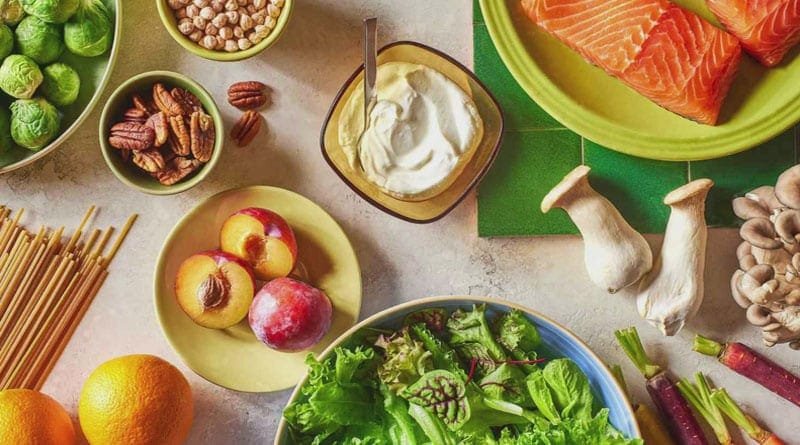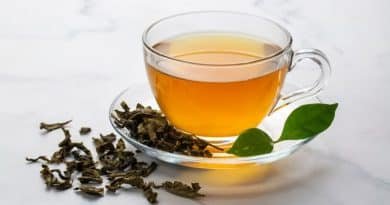Vegan Menopause Diet Plan for Better Living: Plant-Based Power
Are you curious how a vegan menopause diet plan can support health during the transformative phase? Menopause is a significant phase in every woman’s life, marking a transition that can bring about various physical and emotional changes.
A vegan menopause diet can make the journey smoother, healthier, and more enjoyable. A plant-based diet helps manage symptoms and supports overall well-being by providing essential nutrients and antioxidants.
Symptoms such as hot flashes, mood swings, and changes in metabolism are common, but with the right approach, these can be managed effectively.
Menopause marks the end of a woman’s menstrual cycle, typically between ages 45 and 55. It’s diagnosed after going 12 months without a menstrual period. The body undergoes numerous hormonal changes, leading to various symptoms like hot flashes, mood swings, and weight gain.
We’re here to share all you need to know about creating an ideal plant-based diet for menopause. By understanding key nutritional needs and experimenting with delicious, nutritious recipes, we aim to help you maintain optimal wellness throughout the significant life phase.
Vegan Menopause Diet Plan: Key Nutrients for Optimal Health
Calcium and Vitamin D: During menopause, bone health becomes increasingly important due to the reduction in estrogen levels, which can result in lower bone density and a higher risk of osteoporosis.
Maintaining strong bones and preventing related issues requires sufficient intake of calcium and vitamin D. You can find these nutrients in fortified plant milks like almond, soy, and oat, as well as in tofu, almonds, and leafy greens such as kale and broccoli.
Iron: Menopause can lead to iron deficiency due to changes in menstrual patterns and reduced iron absorption. Iron is vital to produce hemoglobin, which carries oxygen in the blood. To combat potential iron deficiency, include iron-rich foods like lentils, chickpeas, quinoa, spinach, and fortified cereals. Pairing these foods with vitamin C-rich items like oranges, strawberries, or bell peppers can enhance iron absorption.
Omega-3 Fatty Acids: These healthy fats are significant in managing inflammation, supporting heart health, and potentially alleviating mood swings and depression associated with menopause.omega-3 fatty acids support brain health and cognitive performance.
Vegan sources of omega-3s include flaxseeds, chia seeds, walnuts, and hemp seeds. Incorporating these seeds into smoothies, salads, or as a topping for oatmeal can help ensure adequate intake of these essential fats.
By focusing on these critical nutrients, a vegan diet can effectively support health and well-being during the menopausal transition.

Balancing Hormones with Plant-Based Foods
Phytoestrogens: Phytoestrogens, found in soy products, flaxseeds, and legumes, can mimic estrogen and help balance hormone levels naturally. These compounds bind to estrogen receptors in the body, offering a more natural approach to hormonal regulation. Including foods like tofu, tempeh, and chickpeas in the diet can be beneficial for maintaining hormonal balance.
Magnesium plays a vital role in over 300 bodily processes, including hormone regulation. The important mineral aids in the production of sex hormones such as estrogen and progesterone. Incorporating foods rich in magnesium, like pumpkin seeds, spinach, and black beans, can help manage stress, enhance sleep quality, and more effectively balance hormones.
Creating a Vegan Menopause Diet Plan
Breakfast Ideas: Start the day with a nutrient-packed breakfast to fuel on the morning. Smoothies made with fortified plant milk, spinach, berries, flaxseeds, and a scoop of protein powder are an excellent choice for a quick and refreshing meal.
Oatmeal topped with a mix of nuts, seeds, and fresh fruits can be filling and nutritious for something warm and comforting. Adding a sprinkle of cinnamon or a drizzle of maple syrup can enhance the flavor of oatmeal.
Lunch Options: Build a balanced lunch with whole grains, protein-rich legumes, and many colorful vegetables. A quinoa salad with chickpeas, avocado, cherry tomatoes, cucumbers, and various veggies drizzled with a tangy tahini dressing offers a delightful and nutritious meal.
Incorporating fresh herbs such as parsley or cilantro can enhance flavor significantly. Another option could be a hearty lentil soup with a side of whole-grain bread, or a wrap filled with hummus, spinach, shredded carrots, and bell peppers.
Dinner Delights: For dinner, consider nutrient-dense dishes like a hearty lentil stew with sweet potatoes, kale, and a touch of smoked paprika for extra flavor. Alternatively, tofu stir-fry with a medley of vegetables such as broccoli, bell peppers, snap peas, and water chestnuts served overbrown rice can be satisfying and healthy.
Adding a splash of soy sauce or a sprinkle of sesame seeds can enhance the depth of flavor in stir-fry. These meals provide essential nutrients and ensure you end the day on a delicious note.

Snacks to Keep You Energized
Nut and Seed Mixes: Create a trail mix by combining a variety of nuts and seeds, such as almonds, pumpkin seeds, sunflower seeds, and even walnuts. Mixing in dried fruits such as raisins or cranberries can introduce a hint of sweetness. It makes for a quick, nutritious, and energy-boosting snack you can easily take.
Hummus and Veggies: Hummus, a creamy blend of chickpeas, tahini, and spices, paired with fresh carrot sticks, cucumber slices, and bell pepper strips, makes for a satisfying and healthful snack. Combination provides essential vitamins and minerals and offers a good dose of fiber and protein to keep you feeling full and energized throughout the day.
Hydration Matters
Drink Plenty of Water: Staying hydrated is vital, especially during menopause, as it helps regulate body temperature and maintain overall health. Aim to drink at least eight glasses of water daily to keep the body functioning optimally and help manage symptoms like hot flashes and dryness.
Herbal Teas: Herbal teas like chamomile, peppermint, and ginger can soothe symptoms like hot flashes and digestive issues. Chamomile can help with relaxation and sleep, peppermint is great for cooling the body and easing headaches, and ginger can aid digestion and reduce nausea. Incorporate these teas into the daily routine for comfort and relief during menopause.
Exercise and Lifestyle Tips
Stay Active: Regular exercise is vital for overall health. It helps manage weight, improves mood by releasing endorphins, and boosts bone health by strengthening the skeletal system. Aim for at least 30 minutes of moderate activity, such as brisk walking, cycling, or swimming, on most days of the week to reap these benefits.
Stress Management: Managing stress is vital for mental and physical well-being. Incorporate mindfulness practices like yoga to enhance flexibility and reduce tension, meditation to calm the mind and improve focus, or deep breathing exercises to lower blood pressure and promote relaxation. These practices can help you handle stress more effectively and maintain a balanced lifestyle.

Why Consider a Vegan Menopause Diet Plan?
Benefits of Going Plant-Based: Switching to a vegan diet during menopause can offer several advantages. Plant-based diets are rich in essential nutrients, low in saturated fats, and high in fiber, which can help manage weight, reduce hot flashes, and improve overall well-being.
Consuming various fruits, vegetables, legumes, and whole grains can provide essential antioxidants and phytonutrients that support hormonal balance and cardiovascular health. Dietary shift also promotes better digestion and increase energy levels, making the transition through menopause smoother and more comfortable.
Potential Challenges and How to Overcome Them
Getting Enough Protein: Vegan diets can sometimes be low in protein. To ensure adequate intake, include a variety of plant-based protein sources like beans, lentils, tofu, tempeh, and quinoa.
Incorporating nuts, seeds, and whole grains can further diversify the protein intake and provide other essential nutrients.
Supplementation: You might want to consider adding a vitamin B12 supplement to your routine, especially since the nutrient is mainly found in animal-based foods and is important for nerve health and forming red blood cells.
A vitamin D supplement could also be beneficial for supporting bone and immune health, particularly in areas with limited sun exposure. For omega-3 fatty acids which are commonly found in fish, algae-based supplements offer a good alternative.
Personalizing: Vegan Menopause Diet Plan
Body Listening: Pay attention to what the body needs, as everyone’s menopause journey is different. Notice how various foods affect you and modify the diet based on these reactions. Some might find that adding more soy products alleviates hot flashes, while others may need to steer clear of spicy foods exacerbate symptoms. Keeping a food diary can assist in tracking the body’s responses and making well-informed dietary changes.
Consult a Professional: A registered dietitian specializing in vegan nutrition can provide personalized advice and help create a diet plan tailored to the needs. They can ensure you get all the necessary nutrients and recommend supplements. Regular consultations can help you stay on track and modify as the body changes.
Final Verdict of Vegan Menopause Diet Plan
Managing menopause can be tough, but embracing a vegan diet plan may offer substantial benefits. Packed with essential nutrients, plant-based foods can help balance hormones, manage weight, and improve overall well-being.
Foods like leafy greens, nuts, seeds, and legumes are rich in vitamins, minerals, and antioxidants that support hormonal health. Incorporating soy products, such as tofu and tempeh, can provide phytoestrogens that mimic estrogen in the body, potentially easing symptoms.
Remember to stay hydrated; water helps regulate body temperature and maintain skin elasticity. Exercise regularly to boost mood, increase energy levels, and support cardiovascular health. Listen to the body’s needs, ensuring you get ample rest and manage stress through activities like yoga or meditation.
FAQs of Vegan Menopause Diet Plan
Q: Is getting enough calcium on a vegan diet challenging during menopause?
A:No, many plant-based foods are rich in calcium, such as fortified plant milk, tofu, almonds, and leafy green vegetables.
Q: Can a vegan diet help reduce hot flashes?
A:Yes, a vegan diet rich in phytoestrogens, found in soy products and flaxseeds, can help balance hormones and reduce hot flashes.
Q: Do I need to take supplements on a vegan menopause diet plan?
A:Taking vitamin B12 and possibly vitamin D supplements is advisable, as these nutrients can be challenging to obtain from a vegan diet alone.
Q: What are some good vegan protein sources during menopause?
A:Excellent vegan protein sources include beans, lentils, tofu, tempeh, quinoa, and nuts.
Q: How can I get enough iron on a vegan diet?
A:Include iron-rich foods such as lentils, chickpeas, quinoa, and fortified cereals. Pair them with vitamin C-rich foods to enhance absorption.
Q: What vegans should eat during menopause?
A:Vegans should eat various nutrient-rich plant foods, ensure omega-3 intake from flaxseeds or algae supplements, use soy products for hormonal balance during menopause, and stay hydrated for overall health.
Q: What is the best protein for menopause?
A:The best protein for menopause includes plant-based sources like beans, lentils, tofu, tempeh, quinoa, nuts, seeds, and whole grains. Consult a dietitian for personalized advice.




